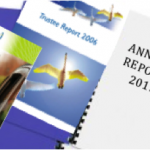Clear and repeated communications
Again, I am continuing on with a discussion of the Edelman Trust Barometer from February this year. (You can read the business trust and blog trust posts for background.)
Their media release states “Swift and accountable communications: Respondents said they need to hear information 3-5 times before they believe it. Companies should inform conversations among the new influencers on blogs, in forums, and bulletin boards. Australians under 34 are twice as likely to share both positive and negative information about a company online as their older counterparts – this trend will only grow. ”
The repetition of a clear message is important in getting people to trust you (your business) and accept that message. For example, any good presenter/teacher will summarise key points at the end of a topic as that helps others absorb that information.
When planning some marketing, remembering that people like to hear a message 3 – 5 times (and many have long said 7 times) before buying it means:
- you may not get great results from your first attempt at marketing
- consider how you can present your message in multiple ways rather than spending your budget on one ad
- use images and layout to enhance your message – a stronger message may need less repetition than a hidden or weak message
- every interaction you have with people in your demographic (and beyond) can reinforce or damage that message so make sure all ads, blogs, your website, your business card and so on are consistent, professional and appropriate for the purpose
Prompt communication is important in this information age – discussing an event well afterwards must be managed carefully so it doesn’t appear you are out of date. For instance, I could write that people affected by the February 7 bushfires are rebuilding and still need support all year but just writing ‘donate to the bushfires’ now looks very old.
Blogs, emails and social media are obviously key ways to making communications immediate and relevant – which is why I find it hard to believe they aren’t trusted forms of communication.



Recent Comments